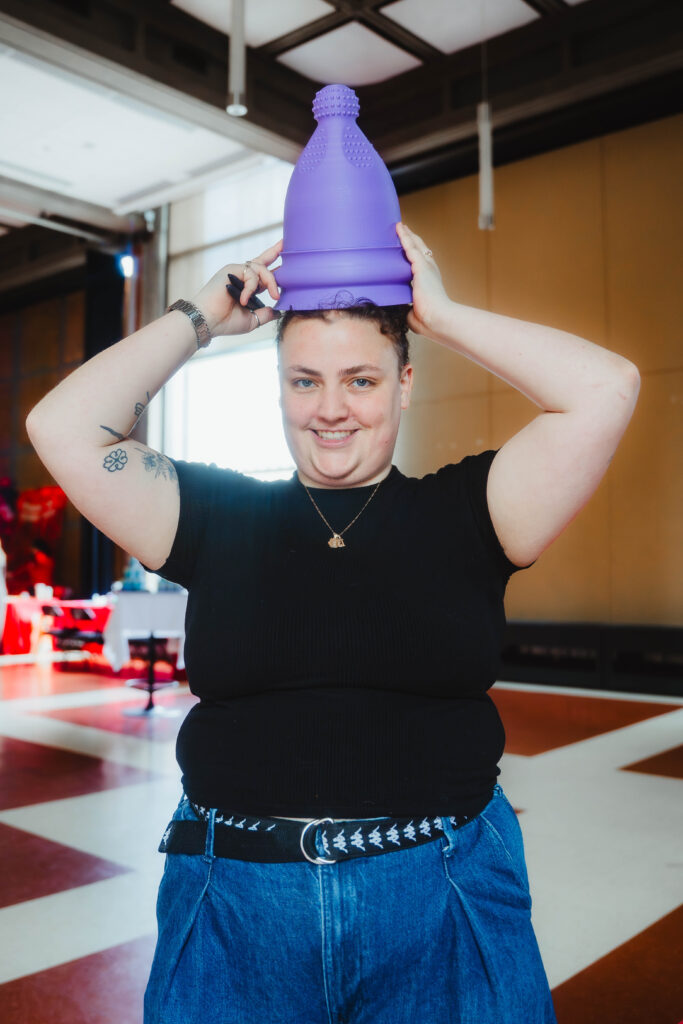I got my first period on the morning of my second day of ski school—great timing, right? My mum scrambled through our bathroom cabinet, finding what looked like a medieval pad since tampons weren’t on the table. As our bus wound up country roads to the hill, waves of discomfort rippled through my body. I was painfully aware of every sensation, both inside and outside my body, unable to move past the overwhelming feelings.
What I didn’t know then was that this would become a monthly struggle. When friends switched to tampons, I couldn’t make it work. Despite countless attempts, I never achieved that “you don’t even feel it” moment everyone promised. Even pads presented challenges—I was deeply aware of them at all times, sometimes brought to tears because I just wanted to be comfortable.
This was just the beginning of understanding how my ADHD impacts my period, and vice versa.
The Hidden Connection
While menstruation affects nearly half the population, the intersection of periods and neurodivergence remains largely unexplored. Many neurodivergent folks experience increased challenges when menstruating, yet research on this connection is limited. This leaves people suffering in silence, often facing medical dismissal when seeking support.
I experienced this firsthand when doctors told me I was “making up” being able to feel tampons and that “cramps are normal”—even when I was vomiting from pain. Initially I shied away from the medical system, focusing instead on how to cope with my symptoms. However, I eventually found a doctor (who menstruates) that was open to listening, and supported me in seeking the care I deserve.
The Science Behind the Struggle
Neurodivergence describes the spectrum of different ways people think and experience life. It commonly includes folks with Autism Spectrum Disorder (ASD), Attention Deficit Disorder (ADD/ADHD), and learning disabilities (Harvard).
The connection between neurodivergence and menstrual disorders is striking. Research shows that Premenstrual Dysphoric Disorder (PMDD)—a condition causing severe depression, anxiety, and mood swings before periods—affects (ADDitude):
- Up to 92% of women with ASD
- 46% of women with ADHD
- Only 3-9% of neurotypical menstruators
This huge difference comes down to three factors: genetics, hormone sensitivity, and sensory sensitivity.
Hormones and Brain Chemistry
Throughout your menstrual cycle, hormones like estrogen and progesterone don’t just control your period—they also affect your brain chemistry. Estrogen plays a crucial role in producing and using dopamine, the primary neurotransmitter involved in ADHD symptoms (ADDitude).
Here’s what happens:
- High estrogen weeks (mid-cycle): ADHD symptoms often improve—better focus, memory, and emotional regulation
- Low estrogen weeks (before and during period): ADHD symptoms worsen—difficulty focusing, impaired memory, executive dysfunction (Adult ADHD Centre)
This hormonal rollercoaster may contribute to the high rates of PMDD in neurodivergent populations. Some research even suggests these dopamine changes can make ADHD medications less effective during periods, worsening symptoms further (Jong, 2023). I have definitely experienced this effect. Leading up to and during my period I have difficulty completing my daily tasks, regulating my emotions and I often see a drastic change in my work productivity.
The Sensory Challenge
Periods can be uncomfortable for anyone, but neurodivergent folks often experience heightened sensory sensitivity. Cramps, headaches, and the physical reality of bleeding can be overwhelming and dysregulating, creating barriers to normal daily activities.
Most menstrual products aren’t designed for sensory-sensitive people who are acutely aware of their bodies but may struggle to communicate their experiences effectively. Everyone – neurodivergent or not – is different and will experience their period differently. As such, it’s important to explore all the options to find something that works for you. Many folks love menstrual cups or discs, others find it easier to buy an insertion aid, some choose to free bleed! Personally, I’ve found period underwear to be the least disruptive option—it allows me to go about my day without constant reminders of my period. Period underwear feels like any other piece of clothing, it doesn’t feel bulky, it doesn’t use adhesives or chafe like a disposable pad, I don’t have to worry about feeling something inside me, and I generally only need to change them twice a day – some even hold up to 4 tampons’ worth of menstrual fluid!
Finding Solutions and Community
For neurodivergent folks, menstruation can lead to burnout, executive dysfunction, and difficulty performing everyday tasks. The impact on personal and professional life can be significant.
But it’s not all challenges. Finding accommodating workplaces and friends, learning to advocate for your needs, and discovering menstrual management solutions that work for you can be life-changing. One of the most helpful solutions in my experience has been to talk about it. I happily tell anyone and everyone about my relationship to my period and the symptoms that accompany it. Through this unabashed sharing, I have gained a community that not only knows about my experience, but is there to support and accommodate me throughout.
I’ve been fortunate to find a workplace that supports me through all stages of my ADHD cycle, where I can be open about the difficulties I face. This transparency has made an enormous difference in managing both my neurodivergence and my period.
Moving Forward
If you’re a neurodivergent menstruator, know that you’re not alone in this struggle. The intersection of periods and neurodivergence is real, valid, and deserving of attention and accommodation.
I encourage everyone—neurodivergent or not— to explore ways to work with their brain rather than against it, your needs are valid, real, and deserve to be met. While being neurodivergent can be challenging—especially when you menstruate—it’s also a source of incredible creativity and unique perspectives.
We need more research, better medical understanding, and products designed with neurodivergent folks in mind. Until then, seeking community, advocating for accommodation, and finding what works for your body and brain can make all the difference.
